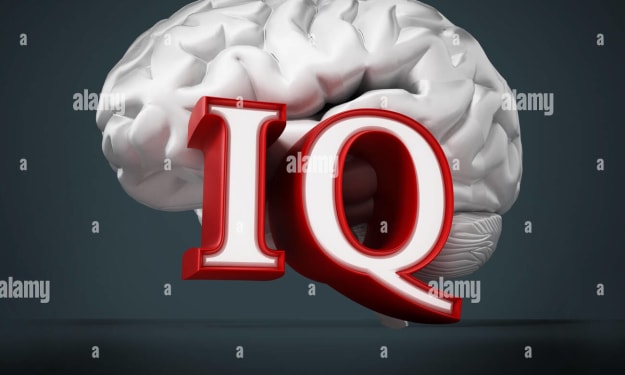WHY HUMANS ARE THE LEADING CREATURES ON EARTH
Unpacking the Factors Behind Human Primacy on Earth

The notion that humans are the leading creatures on Earth is subjective and depends on the criteria used for assessment. However, several factors contribute to the perception that humans hold a dominant position on the planet:
Cognitive Abilities: Humans possess advanced cognitive abilities, including high-level reasoning, problem-solving skills, and complex communication. Our ability to think abstractly, plan for the future, and innovate has allowed us to develop sophisticated technologies and civilizations.
Tool Use and Technology: Humans are adept at using tools and developing technology. The invention and utilization of tools have played a crucial role in our ability to manipulate the environment, enhance our survival, and create more comfortable living conditions.
Social Organization: Humans are social beings with complex social structures. The ability to collaborate, form communities, and share knowledge has enabled us to achieve collective goals, build civilizations, and adapt to diverse environments.
Adaptability: Humans have demonstrated a remarkable ability to adapt to various environments and climates. Our capacity to create and modify our surroundings, develop diverse cultures, and exploit a wide range of resources has contributed to our success as a species.
Language and Communication: Humans have developed intricate systems of communication, including language. The ability to convey abstract thoughts, share knowledge across generations, and coordinate complex activities has played a crucial role in our ability to organize societies and accomplish large-scale projects.
Bipedal Locomotion: Walking on two legs (bipedal locomotion) has freed up our hands for tool use and manipulation. This adaptation has given humans a significant advantage in exploring and interacting with the environment.
Cultural Evolution: Humans engage in cultural evolution, where knowledge, ideas, and technologies are passed down through generations. This continuous accumulation of information allows us to build on the achievements of our predecessors and progress as a society.
Biological Characteristics
Brain Size and Complexity: Humans have relatively large and complex brains compared to other species. This allows for advanced cognitive functions such as problem-solving, abstract thinking, and complex decision-making.
Opposable Thumbs: The structure of human hands, with opposable thumbs, enables fine motor skills and intricate manipulation of objects, facilitating tool use and technology development.
Cultural Innovation
Cultural Transmission: Humans have the ability to transmit knowledge and skills across generations through teaching, storytelling, and written records. This cultural transmission accelerates the accumulation of knowledge and technological advancements.
Art and Symbolism: The creation of art, symbolism, and abstract representations is a unique human trait. This ability contributes to cultural identity, communication, and the development of complex societies.
Technological Advancements
Fire Control: The mastery of fire allowed early humans to cook food, stay warm, and protect themselves, leading to significant advantages in survival.
Agriculture: The development of agriculture marked a pivotal moment in human history, enabling the transition from a nomadic lifestyle to settled communities and the eventual rise of civilizations.
Social Organization
Division of Labor: Humans excel at dividing labor based on specialization, allowing for the efficient allocation of resources and the development of diverse skills within a community.
Institutions and Governance: Complex social structures, institutions, and systems of governance have emerged, contributing to the organization and stability of human societies.
Environmental Impact
Modification of Habitats: Humans have the ability to modify and shape their environments to meet their needs. This includes the construction of shelters, agriculture, and infrastructure development.
Domestication of Animals: The domestication of animals for various purposes, such as agriculture, transportation, and companionship, has further enhanced human capabilities.
Global Exploration and Migration
Exploration and Migration: Human curiosity and adaptability have led to the exploration and migration to diverse environments across the globe. This has allowed for the colonization of various ecosystems and adaptation to different climates.
Language and Communication Evolution
Written Language: The development of written language has played a crucial role in the preservation and dissemination of knowledge, contributing to the growth of civilizations.
Global Communication: Modern advancements in communication technologies have enabled humans to connect globally, fostering collaboration, trade, and the exchange of ideas.
In conclusion, the leading position of humans on Earth is a result of a combination of biological, cognitive, cultural, and technological factors. Our advanced cognitive abilities, coupled with the use of tools and technology, have allowed us to shape our environment, organize complex societies, and innovate across generations. The ability to communicate, pass on knowledge culturally, and adapt to various environments has been key to our success as a species.
However, it is crucial to approach the concept of human dominance with a sense of responsibility. The impact of human activities on the planet, including environmental degradation and the extinction of other species, prompts ethical considerations. Recognizing the interconnectedness of all life forms and the importance of sustainable practices is essential for ensuring a balanced and harmonious coexistence on Earth. As stewards of the planet, humans have the responsibility to consider the well-being of the entire ecosystem and strive for a more sustainable and equitable future.
About the Creator
Enjoyed the story? Support the Creator.
Subscribe for free to receive all their stories in your feed. You could also pledge your support or give them a one-off tip, letting them know you appreciate their work.






Comments
There are no comments for this story
Be the first to respond and start the conversation.